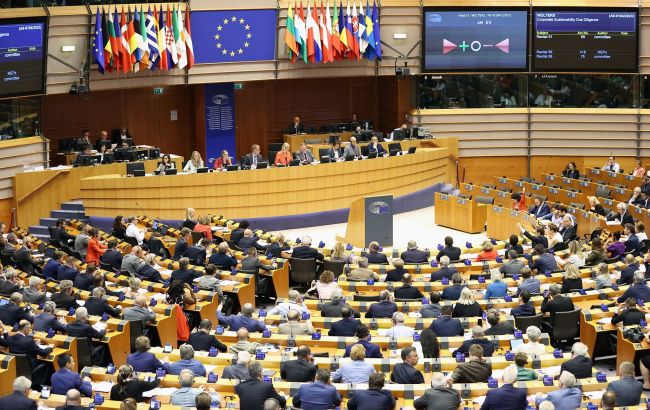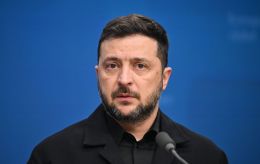European Parliament backs proposals for EU phase-out of Russian gas and oil
 Illustrative photo: European Parliament backs proposals for EU phase-out of Russian gas and oil (Getty Images)
Illustrative photo: European Parliament backs proposals for EU phase-out of Russian gas and oil (Getty Images)
On October 16, European Parliament committees approved proposals calling for a complete EU phase-out of Russian gas and oil, according to the European Parliament press service.
According to reports, the European Parliament’s committees on Industry, Research and Energy and on International Trade approved proposals to ban all Russian gas imports to the EU, including LNG, starting January 1, 2026.
Some exceptions are allowed only for existing short-term contracts (until June 17) and long-term contracts — until January 1, 2027 — provided these contracts were signed before June 17, 2025.
Under the proposed measures, energy operators would be able to terminate contracts citing force majeure, which could include a legally binding ban on further imports.
The proposals also suggest banning the temporary storage of Russian-origin gas in the EU from January 1, 2026. To close loopholes and reduce the risk of circumvention, operators would be required to provide more detailed proof of the gas’s country of origin.
From the same date, a ban on all Russian oil and petroleum product imports would take effect, along with additional safeguards and stricter penalties for attempts to bypass the ban.
In addition, MEPs removed a provision allowing the European Commission to temporarily suspend the import ban in situations where the EU’s energy security is threatened.
The proposals were approved with 83 votes in favor, 9 against, and 1 abstention.
MEPs noted that Russia has systematically used its energy resources as a weapon over the past two decades, a practice that has intensified following its open attack on Ukraine.
EU phase-out of Russian oil and gas
Recently, US President Donald Trump stated that the United States is ready to impose "serious" sanctions on Russia — provided NATO countries stop purchasing energy resources from Russia.
Trump criticized Europe for "not tough enough sanctions" against Russia and for continuing to buy Russian oil.
It is also known that at least eight EU countries still import Russian gas in varying amounts. There is no precise data on where the purchased Russian gas is actually used.
Meanwhile, European Commission President Ursula von der Leyen announced that she proposes to accelerate the gradual phase-out of fuel imports from Russia. Her statement came after discussions with Trump.
Poland has joined this position, calling on EU countries to stop importing Russian oil by the end of 2026 to cut funding for Russia’s military machine and help Ukraine end the war.
The European Commission is also expected to propose a full ban on Russian LNG imports by January 1, 2027, as part of the 19th sanctions package — one year earlier than previously planned.
However, Hungary and Slovakia oppose the EU’s phase-out of Russian energy.
In particular, Hungarian Foreign Minister Péter Szijjártó stated that Budapest is against EU sanctions and restrictions on Russian oil supplies, noting that such a decision could threaten the country’s energy security.
Understanding that pro-Russian Hungary and Slovakia may try to block new sanctions, the European Commission proposed approving new sanctions against Russia by a majority vote of EU member states rather than the traditional unanimous approval. For now, this bypass mechanism applies only to Hungary.
Recently, EU ambassadors agreed on a plan to phase out Russian oil and gas by 2028, despite the positions of Hungary and Slovakia.

